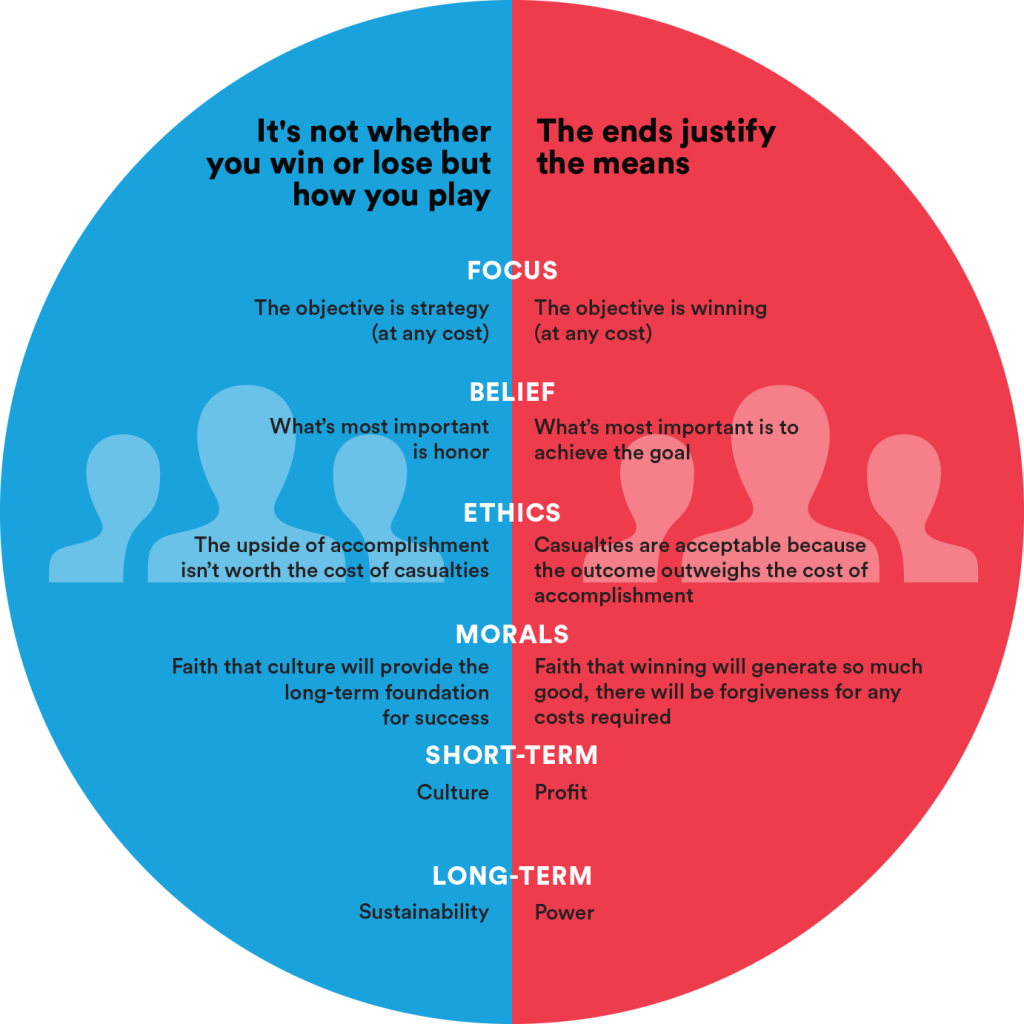The concept of brand karma adds important principles for how businesses must behave. If profit was the only objective, there would be no motivation for ethical practices except the risk of violating the law. Brand karma introduces the context for a new way of thinking about goals
> Brands elevate business to higher standards.
Public trust in government’s ability continues to weaken. Brands are becoming the new international role models. Democracy swings left and right, fueled by propaganda, constrained by borders. But brands span the globe. They must function consistently across different national legal constraints. Branding therefore provides a universal ethical and moral framework for business actions.
“Society increasingly holds global business accountable as the only institutions powerful enough to respond at the scale of the challenges our planet faces. There is no multinational government, but there are many cross-border corporations that witness how our resource constraints affect market, customers, communities and natural resources”
-Adam Werbach
> Brands are grounded in culture.
Right and wrong are universal concepts, but there are differences in how they’re perceived. What seems right to me might be considered offensive to others. Gender equality is a good example. It’s all relative to your personal feelings.
Cultural norms set the foundation for how we feel about things. Morality and ethical beliefs are the soul of culture. It’s possible to predict the reactions to your actions by understanding the people who will see them. Therefore brand karma is relative to your customer’s beliefs, unlike the spiritual concept of karma that is relative to religious beliefs.

Knowing your audience is essential in building brand karma. Since it’s perception-based, it’s critical to decide who’s observing your good intentions. It must be authentic and honest. Make it’s motivated by your heart, not by your wallet.
When brands pander with bogus actions that attempt to engage customers without integrity, the resulting backlash can be destructive. The marketplace acts as a social watchdog to expose inauthenticity. Don’t waste your brand karma by trying to do or be something you don’t truly believe.
Brand karma isn’t a short-term strategy. It’s intended to guide your principles for the long haul. A marathon, not a sprint. Consistency is the key, with a steady flow of positive daily actions. Small steps, routinely taken, carry you great distance.
“Profit is the applause you get for creating a motivating environment for your people and taking care of your customers.”
-Ken Blanchard
The first step is easy. Do something good for your brand today. Make a donation to a worthy cause. Send a note of thanks. Praise a team member. Find actions that bring joy, not revenue. And then let brand karma bring you the profits.

